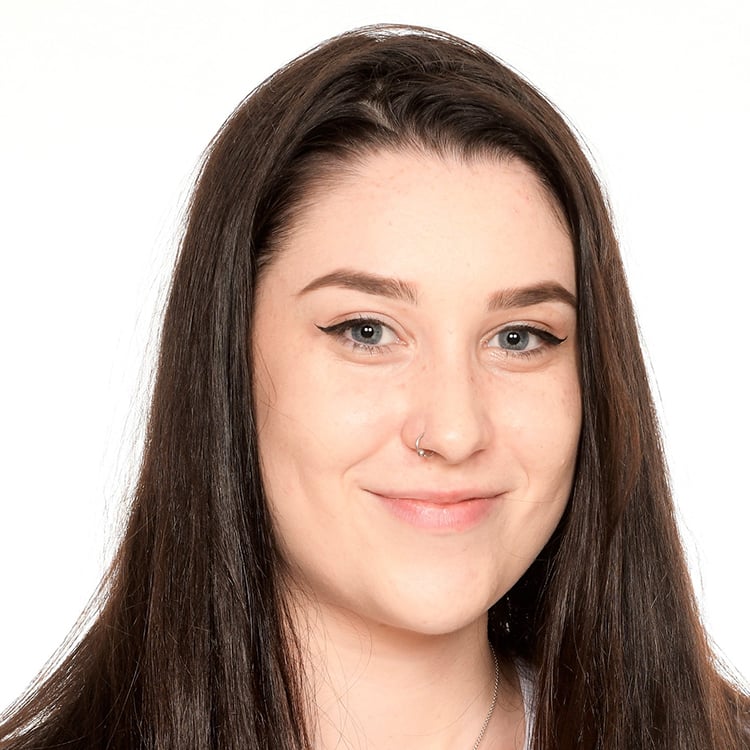
Zoe Waters
Research Assistant
BSc (Hons)
zoe.waters@thekids.org.au
she/her/hers
Zoe is a PhD candidate under the supervision of A/Prof Ashleigh Lin and Dr Yael Perry at The Kids Research Institute Australia, and A/Prof Jeneva Ohan at the University of Western Australia. Her PhD focuses on the existence and effects of self-stigma in young people who are at ultra-high risk for psychosis, and how best to measure it, and alleviate the negative consequences produced by it.
Her clinical and research interests centre around improving outcomes for young people who are at risk of, or are experiencing, serious mental illness, with a particular interest in schizophrenia spectrum disorders. Zoe also currently works as a research assistant in the Youth Mental Health Team on the Altitudes East West Project, which is a trial of a novel online intervention for carers of young people with first-episode psychosis.
Zoe holds a Bachelor of Science with First Class Honours in Psychology from the University of Western Australia. She is currently certified as a Provisional Psychologist and is completing her Master of Clinical Psychology and Doctor of Philosophy at the University of Western Australia.
Education and Qualifications
- Bachelor of Science (First Class Honours) in Psychology – The University of Western Australia
Projects
The effectiveness of education and lived experience resources in reducing stigma towards young people at-risk of psychosis
This study aimed to evaluate and compare the effectiveness of two brief written anti-stigma resources.
Suicide prevention in LGBTQA+ young people: Best practice guidelines for clinical and community service providers
These guidelines outline a set if best practices for suicide prevention in LGBTQA+ young people, targeting both clinical and community service providers.
Mindful Self-Compassion for LGBTQ youth: a multi-site randomized controlled trial
Published research
Perceived stigma and self-stigma in young people at ultra-high risk for psychosis: Associations with identity-related, psychological and functional outcomes
Perceived stigma and self-stigma negatively affect identity-related, psychological and functional outcomes among stigmatised populations. There is limited research exploring the impact of stigma among young people at ultra-high risk (UHR) for psychosis. We investigated the association of perceived stigma and self-stigma with these outcomes in young people at UHR.
Barriers and facilitators to mental health care access and engagement for LGBTQA+ people with psychosis: A scoping review
LGBTQA+ individuals are at increased risk of experiencing psychosis and face barriers in accessing appropriate and timely mental health support. This scoping review maps the existing literature to identify barriers and facilitators to access and engagement to care for LGBTQA+ people across the psychosis spectrum.
Barriers and facilitators to mental health treatment access and engagement for LGBTQA+ people with psychosis: a scoping review protocol
The prevalence of psychosis has been shown to be disproportionately high amongst sexual and gender minority individuals. However, there is currently little consideration of the unique needs of this population in mental health treatment, with LGBTQA+ individuals facing barriers in accessing timely and non-stigmatising support for psychotic experiences.
Development of best practice guidelines for clinical and community service providers to prevent suicide in LGBTQA+ young people: A Delphi expert consensus study
The aim of this study was to develop best practice guidelines for preventing suicide and reducing suicidal thoughts and behaviours in LGBTQA+ young people (lesbian, gay, bisexual, trans, queer/questioning, asexual, and those of other diverse sexualities and genders) within clinical and community service settings in Australia.
The effectiveness of a day hospital mentalization-based therapy programme for adolescents with borderline personality traits: Findings from Touchstone—Child and Adolescent Mental Health Service
Individuals with borderline personality disorder (BPD) are at a substantial risk of harm to themselves and others, experience high levels of functional impairment and typically are high users of tertiary healthcare to address their mental health concerns. As indicators for BPD typically emerge in adolescence, a day therapy service in Bentley, Western Australia, Touchstone Child and Adolescent Mental Health Service (CAMHS), was developed as an intensive intervention for adolescents with indicators for BPD and its associated symptomology.
Gender-Neutral Toilets: A Qualitative Exploration of Inclusive School Environments for Sexuality and Gender Diverse Youth in Western Australia
School toilets have been identified by sexuality and gender diverse (SGD) students as the least safe spaces in educational institutions. They are sites of verbal, physical and sexual victimisation.
Group mindful self-compassion training to improve mental health outcomes for LGBTQIA+ young adults: Rationale and protocol for a randomised controlled trial
Young adults who are lesbian, gay, bisexual, trans, queer or questioning, intersex, asexual and other diverse genders and sexualities (LGBTQIA+) are more likely to experience mental health difficulties and are at significantly elevated risk of substance abuse, self-harm and suicide, relative to their heterosexual, endosex and cisgender peers. There is a need for effective mental health interventions for LGBTQIA+ young adults. Mindful Self-Compassion training is a promising approach; among LGBTQIA+ individuals, self-compassion accounts for more variation in mental health outcomes than bullying, victimization, and adverse childhood experiences combined. Furthermore, LGBTQIA+ individuals with high self-compassion report more positive identity and happiness, less self-stigma, and lower suicidality than those with low self-compassion.
Options and realities for trans and gender diverse young people receiving care in Australia's mental health system: findings from Trans Pathways
Trans and gender diverse young people experience mental health difficulties self-harm and suicidality at markedly higher rates than the general population, yet they often feel isolated from mental health services. There is little qualitative research on the experiences of trans and gender diverse young people accessing mental health support in Australia.
